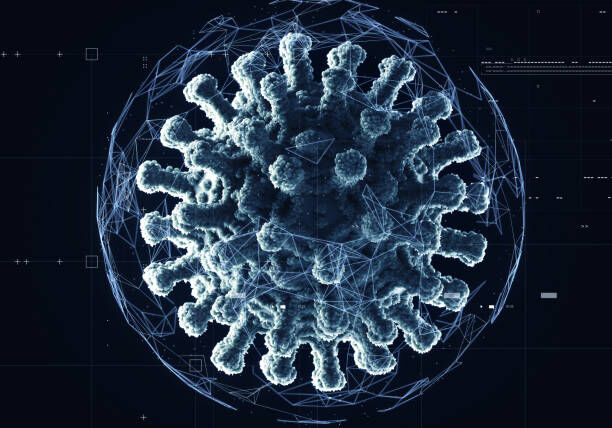New COVID-19 variant causes concern for medical professionals
December 2, 2021
In recent weeks another variant of COVID-19 has surfaced, worrying medical professionals and researchers around the world. Not much is known about what has been coined as the Omicron variant at the moment, but researchers are working to develop a better understanding of the variant and its potential effects.
The new variant first popped up in South Africa, while being reported to the World Health Organization (WHO) on Nov. 24, the first known infection with the Omicron variant came from a sample collected on Nov. 9. According to John Paschen, chairman of the Story County Board of Health, some experts think that the variant was present in Europe around Nov. 20. The Centers for Disease Control and Prevention (CDC) also confirmed the first case of the Omicron variant in the U.S. on Wednesday in a traveler who had recently returned from South Africa.
“The thing that we’re all watching for is not only the contagiousness of it, but does it cause more illness than the Delta variant and does the vaccine protect against it?” Paschen said. “Those are the big things that we’re going to be watching for really closely, but we don’t have any information yet about it.”
Like the Delta variant that hit the U.S. in summer 2020, the Omicron variant is a mutated version of COVID-19. Unlike the Delta variant, the Omicron variant has a large number of mutations, especially focused on the spike protein, which aids the virus in infecting its host. Some experts are concerned that these mutations could have a large impact on the strains infectability as well as the toll it takes on a host.
“We can talk about mutations in the lab, but everything depends on how it interacts with the human body,” Paschen said. “…We just have to wait and see how it interacts in the real world and the human body and there’s still a very good chance that the vaccine will help protect against it.”
Some researchers are optimistic about the effectiveness of current vaccines against the Omicron variant, while others have already begun focusing on developing a vaccine to specifically target it. According to Paul Burton, Moderna’s chief medical officer, it would take approximately three months for the company to push out a vaccine tailored to the variant.
Another concern with the new strain is how it might affect people once they’ve contracted the virus. Some researchers at the WHO speculate that the virus might be more easily contracted and recontracted by people who’ve already had the virus, yet may have a more tame effect on the individuals.
The concern over the Omicron variant is shared by medical professionals and experts at Iowa State. According to Erin Baldwin, the associate vice president of Health Services, the State Hygienic Lab in Iowa is continuing to monitor the spread of the virus through samples provided by Iowa State, Ames and Story County as well as the rest of the state.
“Our ISU public health team monitors the ever changing COVID situation on a daily basis,” Baldwin said. “As with previous variants, we’re staying connected with the latest updates from the CDC and the Iowa Department of Public Health (IDPH) regarding the Omicron variant.”
As governments and organizations race to understand the Omicron variant people are tasked with holding tight and keeping themselves healthy. To this end, Baldwin’s suggestion is the same as it has been since the first arrival of the vaccines.
“The most important thing we can do to prevent serious illness, hospitalization and death from this or any COVID-19 variant is to get vaccinated, and those eligible get a booster,” Baldwin said.
Vaccines and boosters are available at Thielen Student Health Center. The most up-to-date information on COVID vaccine, including how to schedule a vaccine appointment, can be found on the ISU COVID-19 vaccination website.







